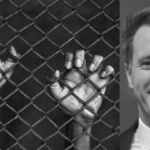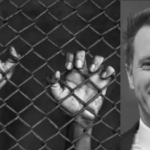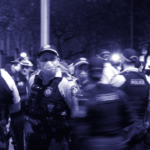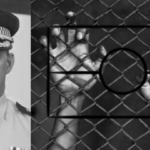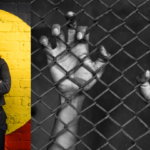NSW Government Launches Review as It Feels Not Enough Kids Are Being Locked Up
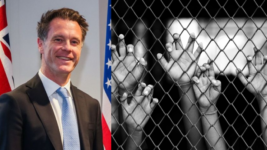
New South Wales premier Chris Minns, attorney general Michael Daley and police minister Yasmin Catley are all grown adults employed to assist in the governing of this state. Yet, for some reason, this appears to make them obsessed with ensuring that as many kids aged 10 to 13 are imprisoned in NSW, and as they do this, it appears they too favour disproportionately targeting the children of First Peoples.
In fact, so concerned is the NSW Labor government about a recent study having revealed that there has been a dramatic drop in 10- to 13-year-old kids being convicted and locked away in the state’s child prisons, which are euphemistically known as youth justice centres, it’s launched a review of the laws pertaining to imprisoning the little ones, because obviously this trend needs to be reversed.
Launched in May, the NSW Review of Doli Incapax for Young Offenders Under 14 is to delve into the principle known as doli incapax, which is a presumption against gaoling kids younger than 14 based on the understanding that they’re likely not sufficiently developed morally or intellectually to know what it means to break the law and they lack the capacity to hold an intent to commit a crime.
Daley has appointed State Parole Authority chair Geoffrey Bellew to review the 17th century UK established presumption against locking up children under 14 if they’re not fully aware of the implications of their actions that have landed them in court, and the former NSW Supreme Court justice is being assisted with the inquiry by former NSW police deputy commissioner Jeffrey Loy.
The guts of the matter is a new NSW Bureau of Crime Statistics and Research report has revealed a massive drop in the number of 10- to 13-year-olds being found guilty of crimes, which commenced following a 2016 High Court decision that clarified doli incapax, and the new BOCSAR research has fortuitously appeared one year after the premier launched a tough-on-kiddie-crime drive.
Disturbing lack of child offenders
The 2016 High Court of Australia case RP versus The Queen is the authority on doli incapax in this country.
The case reestablished that when a 10- to 13-year-old appears in court charged over a crime, it’s up to the prosecution to prove their capacity to fully understand breaking the law, and that this is distinct from their ideas about being naughty or mischievous, this stipulation must be proven beyond a reasonable doubt, and proof that a child committed an action doesn’t automatically result in guilt.
The 17th century established common law principle of doli incapax applies to all children under 7. However, in the case 7- to 13-year-olds who have broken the law, it is up to the prosecution to prove the child had the capacity to understand what is seriously wrong about what they have done before they can be punished accordingly.
In NSW, section 5 of the Children (Criminal Proceedings) Act 1987 (NSW), provides a statutory limitation that “no child who is under the age of 10 years can be guilty of an offence”. This provision only alters the capacity of the courts to lock up kids under 10, while leaving the rest of the common law process untouched, so the prosecution must prove a 10- to 13-year-old child can be imprisoned.
The 8 May press release announcing the review explains that states, like NSW, Victoria and South Australia, which rely solely upon the common law principle of doli incapax, have all seen drops in the number of young convicted offenders since the RP versus The Queen ruling, whereas states like Queensland and WA that have codified the principle in law have not experienced the same drop.
The Queensland doli incapax law is contained in section 29 of the Criminal Code Act 1899 (Qld), and it stipulates that “a person under the age of 10 years is not criminally responsible for any act or omission”, while those under 14 are not responsible, “unless it is proved that at the time of doing the act or making the omission the person had capacity to know that the person ought not to do” it.
As for the law in Western Australia, section 29 of the Criminal Code Act Compilation Act 1913 (WA) is basically the same as the Queensland law.
Yet, the gist of the NSW government press release identifies this drop in convicted children as some sort of social problem, rather than our highest court having clarified how a law designed to protect young children, known as doli incapax, actually works and how it should be interpreted, which, in a just society, would mean the resulting drop in convicted children is actually the desired outcome.
One line makes all the difference
The last week released BOCSAR report considers that the RP versus The Queen decision has resulted in the massive decline in the proportion of 10- to 13-year-olds being found guilty when appearing in court having been charged by police.
Over the 12 months of 2015/16, 76 percent of cases involving kids under 14 saw the subject found guilty, but over 2022-23, this had dropped to just 16 percent.
The study further found that the High Court decision did not affect penalties being imposed by the courts, although it does consider that the ruling has led to more prosecutors withdrawing all charges against 10- to 13-years-olds and that less kids of this age are pleading guilty to crimes in court.
Further, BOCSAR considers that this change cannot be put down to a shift in the types of criminal offences kids are committing and it neither indicates changes in demographics.
The decline in numbers of 10- to 13-year-olds being found guilty does correspond with similar drops in Victoria and South Australia, however, which like NSW, are jurisdictions that rely on the common law principle, while this same reduction in kids being prosecuted over crimes has not been experienced in Queensland or Western Australia, where they do set out doli incapax in statutory law.
So, it appears that NSW has launched a review because Queensland has an extra line on its books, specifically “a person under the age of 14 years is not criminally responsible for an act or omission, unless it is proved that at the time of doing the act or making the omission the person had capacity to know that” they ought not to do it, and it’s this line that’s maintaining higher conviction rates.
Criminalised from a young age
The Minns government launched its youth crime crackdown in March last year, with its introduction of the Bail and Crimes Amendment Bill 2024, and the premier underscored that his law-and-order reform package wouldn’t involve any raising of the age of criminal responsibility, which is the law that stipulates a child must be at least 10 to be prosecuted and punished as a result of crime.
This crackdown on youth bail and crime was undoubtedly going to disproportionately target First Nations children, as in March 2024, 66 percent of child inmates in NSW child prisons were Indigenous kids, and this is despite the Aboriginal children aged between 10 and 17 in NSW accounting for just 7.6 percent of the overall state populace at that age.
The Aboriginal Legal Service NSW/ACT confirmed in February, that last year’s law changes have seen 88 percent of those captured by them having been First Nations kids, while they’ve also accounted for 90 percent of those incarcerated as a result of them, and this crackdown on youth crime in NSW corresponds to a nationwide crackdown on youth crime that’s been escalating since 2023.
Indeed, since the youth crime crackdown in NSW commenced last year, there has been an 80 percent rise in children being refused bail, and so “successful” has this harsh new law been, that instead of it having sunsetted last month as it was originally drafted to, the NSW government has extended it for a further 36 months.
Yet, apparently, this increase in kids being refused bail and locked up in prison isn’t enough for the Minns government, as it doesn’t seem to be capturing enough of the really young ones, and as last week’s announcement reveals, the state of NSW is in dire straits as it’s running out of prisoners aged 10 to 13 and something must be done to reverse this terrible trend in children yet-to-be criminalised.


